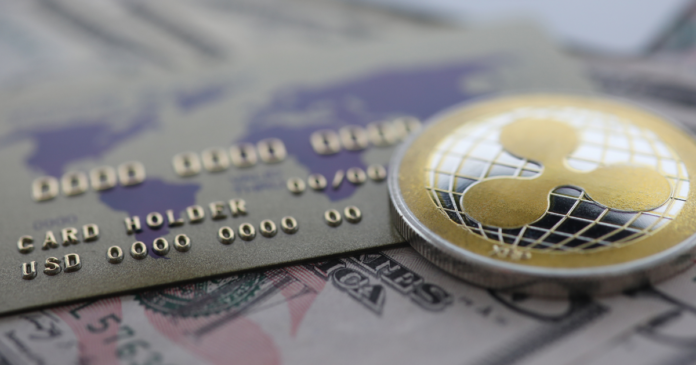The crypto market has taken different forms since its emergence over a decade ago. We’ve seen different projects, but only a few of the old-timers have managed to remain. Projects like Bitcoin, Litecoin, and Ripple have been able to stabilize and are being integrated into different financial institutions and industry communities.
Ripple in particular has gained significant attention over the past few years. The XRP token powers the XRP ledger technology, and both have been in high demand since 2017. Ripple is currently the engine that powers the payment infrastructure of many banks. In this article, we’ll explain what Ripple is all about and how many banks currently adopt it.
BIG BG What Is #Ripple ?
$XRP The Next Global Currency 🌍 pic.twitter.com/A3wPSkqOzi— BULLZILLA (@CKJCryptonews) August 11, 2023
What is Ripple?
Ripple is the crypto company behind the XRP blockchain. The XRP chain is an open-source distributed ledger for financial transactions. A group of programmers led by David Schwartz, Jed McCaleb, and Arthur Britto, as well as Chris Larsen, collaborated to create the XRPL. The four businessmen launched Ripple together in late 2012.
The goal of the creators was to produce a safe blockchain solution for businesses that would have fewer drawbacks than the Bitcoin blockchain itself. They sought to develop a method for making transparent, time- and cost-effective, cross-border RTGS. So, they created the Ripple Transaction Protocol (RTXP) for faster transactions.
Now that Ripple has entered the derivatives space, here is a potential outlook.
What the value of XRP would be if it captured 10% of the derivatives market.
Take this as a grain of salt. pic.twitter.com/tZJFqBOWg9— Mr. Man (@MrManXRP) August 7, 2023
The founders also sought to improve the banking system rather than cause it to collapse. As a result, Ripple is better equipped to meet the transactional requirements of the financial industry.
The XRP token serves as the transaction token of the Ripple platform. Also, Ripple functions differently from Bitcoin since there’s no need for token mining. Validator nodes verify XRP transactions before adding them to the blockchain.
BOOOOOOOOOOOOOOOOOOOOOOOM!!!!
China has partnered with the Bank of International Settlements to create mBridge, a digital payment system that completely bypasses SWIFT and US banks! 💥@Ripple is already a partner of BIS. #XRP is the key to provide liquidity! CBDC –> XRP –>… pic.twitter.com/KWlrIvkzUD
— JackTheRippler ©️ (@RippleXrpie) August 11, 2023
Why’s Ripple popular?
There are several reasons why institutions want to adopt Ripple ahead of other cryptocurrency projects. Let’s look at a few
- Low Cost
Ripple is pretty affordable compared to other crypto projects in terms of transaction fees.
- Scalability
Ripple’s scalability is one of its strong sides. It can process up to 1,500 transactions per second. That comes close to the 1,700 transactions per second capacity of a typical processing company like VISA. So, Ripple’s scalability pitches it side by side with regular providers, but with the advantages of security and cost-friendliness.
- High Speed
Slow transaction speeds are a significant downside of the Bitcoin network. So, users often experience lengthy transaction wait times, which affects their experience. But XRP transactions are different. They are fast by design and are wrapped up between 3-5 seconds.
How could someone not be bullish on $XRP?
Faster, cheaper and greener than $BTC and $ETH
Victory against the SEC declared not a security
Only digital asset with legal clarity
Exchanges relisted it
Ripple is stronger than ever
Banks about to use it
Bullrun incoming
I…
— Crypto Assets Guy (@cryptoassetsguy) August 5, 2023
Why do Banks Adopt Ripple?
Ripple’s strengths appeal to many financial institutions, especially banks. But what do these banks use Ripple for?
- Reliable backend infrastructure
Banks have started taking precautions to protect the security of their financial data as they become more aware of cybercrime.
Interestingly, banks can benefit from the high level of data security offered by blockchain platforms like Ripple thanks to the cryptographic processes that enable them to function. In addition, these platforms have a decentralized design that also minimizes downtime for the system. Banks can rely on Ripple as a backend operating infrastructure thanks to its scalability and low-cost features.
- Cross-border payments
As a payment system, Ripple XRP operates very quickly and enables banks to conduct global settlements in real-time. This makes developing RTGS systems for supporting global trade quite simple for foreign banks.
RippleNet has incorporated a lot of foreign banks. Any bank that joins the network has access to a number of other banks for trading. As a result, XRP provides participating banks’ clients with access to the broader market.
- Industrial partnerships
Banks were one of the earliest customers of Ripple’s services. Also, the XRP technology is being maintained by a growing network of developers, and Ripple is collaborating with numerous international banking professionals to make it better.
- Liquidity control
XRP is a reliable token for purchasing fiat currency like USD due to its significant market capitalization. Ripple’s market cap currently stands at over $30 billion. So, banks can hold their XRP holdings and quickly convert them into reserves in USD and local currencies.
Ripple is directly working with the BIS
Bank for International Settlements
The Central Bank for Central Banks
Let that sink in #Ripple #XRP #cryoto #blockchain #money #fintech #xrpthestandard #BTC pic.twitter.com/Q2oQ7AEszg
— The light shines in the darkness (@MatthewLINY) August 9, 2023
What Banks use Ripple now?
Over 100 banks, financial institutions, and payment systems currently support XRP. In addition, PayPal added XRP to its list of supported currencies. This indicates how financial institutions take advantage of XRP’s payment options and see its potential.
It’s difficult to find a complete list of banks that are using XRP right now, but it’s obvious that some of the biggest names in finance are swiftly supporting and adopting the technology.
- Bank of America (USA): The second-largest bank in the US has been one of Ripple’s longest financial partners. Their partnership has also helped set up international standards for Ripple and improved its global presence.
Old but gold 👊🏻
Ripple Partnership Discussed By Bank of America Exec | https://t.co/KbpNiSoZ7k https://t.co/A6ngrUCcXk
— 𝕀ℕ (@Ianbins) August 6, 2023
- Santander Bank (USA): Santander Bank has partnered with Ripple since 2018. Adopting Ripple enabled the bank to launch the One-FX service, which processes cross-border payments between US and EU customers.
- Siam Commercial Bank (Thailand): Siam adopted Ripple in 2020 to launch SCB Easy, its outward remittance service.
- Standard Chartered Bank (UK): Standard Chartered adopted Ripple in 2016. And has relied on it to provide payment services to customers in over 50 countries.
- PNC Bank (USA): has partnered with Ripple since 2016 to improve its payment speed.
- Cuallix (Mexico): Cuallix adopted Ripple in 2017 and has worked to improve payments between the US and Mexico.
The future looks good for Ripple since a federal court ruled that XRP is not a security, as claimed by the US SEC. So, we could see more banks adopt Ripple in the coming months.
⬆️ For more cryptocurrency news, check out the Altcoin Buzz YouTube channel.
⬆️ Check out our most up-to-date research, NFT and Metaverse buy, and how to protect your portfolio in this market by checking out our Altcoin Buzz Access group, which for a limited time, is FREE. Try it today.
Disclaimer
The information discussed by Altcoin Buzz is not financial advice. This is for educational, entertainment, and informational purposes only. Any information or strategies are thoughts and opinions relevant to the accepted levels of risk tolerance of the writer/reviewers and their risk tolerance may be different than yours. We are not responsible for any losses that you may incur as a result of any investments directly or indirectly related to the information provided. Bitcoin and other cryptocurrencies are high-risk investments so please do your due diligence. Copyright Altcoin Buzz Pte Ltd.





























Great work, Lawrence.
B5